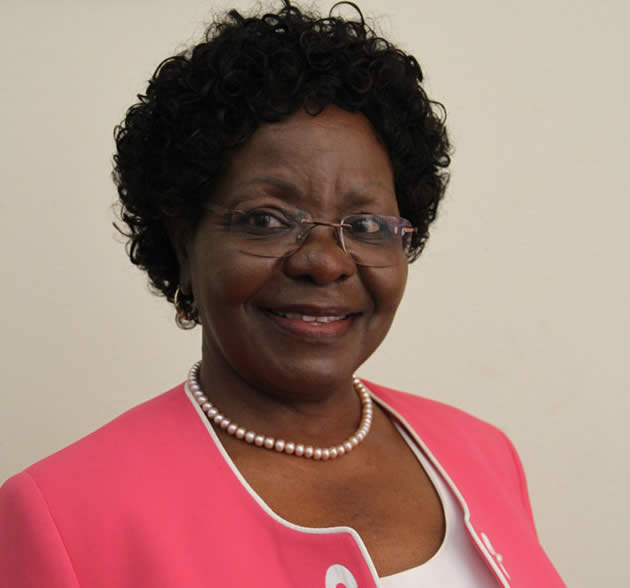
AS the International Women’s month comes to an end, our business reporter Freeman Makopa (FM), this week caught up with the minister of Small and Medium Enterprises, Women and Youth Affairs Sithembiso Nyoni (SN, pictured) to discuss her ministry’s plans to help uplift women who have been marginalised across the country. Below are excerpts of the interview:
FM: You have indicated that you will facilitate the capacitation of budding business women. How is it going to be done?
SN: The ministry is facilitating the provision of entrepreneurship, business management and technical training programmes to budding women through our provincial and district offices. These training programmes equip budding women with relevant skills to run their business profitably and sustainably.
The Ministry has also established two training centres — Jamaica Inn in Mashonaland East and Roger Howman in Masvingo — to offer technical courses, which include craft work and value addition.
My Ministry also partners with private sector and development partners to facilitate on demand training to budding women entrepreneurs. A number of women have been trained to start and run various projects, including poultry production, pig production, goat production, and vegetable processing among others.
FM: What other areas are you looking at?
SN: My ministry facilitates budding women businesses to participate at local, national and international expos and exhibitions. These platforms enable upcoming business women to expose their products to new markets at the same time helping them to understand the needs of their customers. Currently, the ministry is mobilising women through Provincial and District Offices to participate at the 2022 Edition of the Zimbabwe International Trade. Budding women with competitive products are being considered to participate at the national annual event. The ministry has established various funding facilities to assist budding women businesses to start and grow their businesses. These include the Women’s Development Fund ((WDF), which was established as a means of addressing the lack of collateral amongst women and the high interest rates being charged by banks.
The fund targets women micro-enterprises with existing viable and functional women’s projects, whose products have ready markets. In 2021, a total of 111 women projects worth ZW$56,5 million (about US$420 000) was disbursed through the WDF benefitting 535 women across all the sectors of the economy.
- Chamisa under fire over US$120K donation
- Mavhunga puts DeMbare into Chibuku quarterfinals
- Pension funds bet on Cabora Bassa oilfields
- Councils defy govt fire tender directive
Keep Reading
FM: Tell us more about these schemes?
SN: TheWomen’s Development Fund (ZWMB) was established to support women and their projects. It offers individual finance, group finance and order financing, among other products. It is also supporting contract farming by women. As of December 2021, the ZWMB disbursed 11 243 loans in various sectors, including agriculture, livestock and manufacturing. Cumulatively, the bank has disbursed 97 423 loans worth ZW$224,5 million (about US$1,6 million) since June 2018. The Zimbabwe Community Development Fund (ZCDF) was established to support community initiated projects for groups in the communities.
At least three members come together to guarantee each other. In 2021, 66 community projects were funded throughout the country. The Small and Medium Enterprise Development Corporation (SMEDCO) Revolving Fund targets Micro, Small and Medium Enterprises (MSMEs), who want to upscale and expand their businesses including women. In 2021, SMEDCO disbursed ZW$405,5 million (about US$3 million) with 43% of the funding being disbursed to women entrepreneurs.
FM: How have businesses been benefiting from the African Continental Free Trade Area (AfCFTA)?
SN: The Africa Continental Free Trade area was established in 2018 to create a single market for Africa creating numerous industrial and trading opportunities especially for the MSME sector. Zimbabwe is part of the biggest free trade agreement creating opportunities for local MSMEs to participate in existing regional value chains. A number of MSMEs are taking advantage of the regional trade bloc. Additionally, Zimbabwe has signed agreements and memoranda of understanding with Zambia, Namibia, Tanzania, and South Africa among others.
It is also a signatory to the Common Market for Eastern and Southern Africa (Comesa) Treaty, SADC Trade Protocol. These agreements provide a competitive advantage to Zimbabwe products as goods have duty free access as long as they originate from Zimbabwe. Under Comesa, there is a simplified trade regime where products on the agreed common product list between Zimbabwe and Malawi, Zimbabwe and Zambia can be traded duty free. However, for local MSMEs to fully maximise on the existing trading and industrial opportunities, there is need for capacity building.
FM: Last year you acknowledged the role of women from across the region in their respective economies. As a government, what are you doing to ensure they are exposed to markets and information?
SN: Firstly, the ministry has established its structures from provincial, district and ward levels. Such a decentralised institutional arrangement enables the ministry to reach out to all women with relevant information on programmes, including access to markets. Secondly, the ministry promotes market linkages for women entrepreneurs locally, regionally and internationally.
In compliance with our regional trade instruments, Zimbabwe has reconstituted the Zimbabwe FEMCOM (Federation of National Associations of Women in Business) – a chapter under Comesa, which is responsible for promoting programmes that integrate women into trade and development activities in Eastern and Southern Africa. FEMCOM chapters comprise of the following sectors: agriculture, fisheries, industry, energy, tourism, mining, natural resources, transport and communication. Thirdly, my ministry works closely with women associations, civil society organisations relaying important information on programmes and opportunities. The ministry has partnered development organisations to enhance access to information on markets and funding through adoption of digital technologies including social media.
Currently, the ministry is implementing the 50 million African Women Speak Project, an online platform, which will enable women in business to access information to strengthen their business.
FM: How much do you think is required this year to build an SMEs sector that anchors economic recovery?
SN: National Development Strategy 1 has recognised the SME sector as a key sector in achieving manufacturing and rural industrialisation. To achieve these goals in 2022, the sector requires at least ZW$3,5 billion (US$25,3 million). However, Treasury allocated more funding towards MSME development in 2022, compared to 2021.
Whilst this is notable, the allocated budget is not adequate to fully implement programmes to capacitate MSMEs into formalised, productive, competitive and export oriented enterprises.
The ministry has identified high growth oriented clusters in agriculture and agro processing, mining, transport, light engineering and metal fabrication, carpentry and furniture making, textiles and clothing, leather, arts and crafts, and tourism. The ministry is facilitating the provision of comprehensive support services including access to modern workspaces, markets, quality and testing centres and state of art machinery to strengthen the capacities of these enterprises.
FM: Has the Spotlight Initiative been effective?
The objective of the Spotlight Initiative is to end violence against women and girls through implementation of various strategies that include prevention and response mechanisms. Under the Spotlight Initiative Programme, the government has initiated the process of developing pieces of legislation for the promotion of gender equality and elimination of gender-based violence.
Government through the Ministry of Women Affairs, Community, Small and medium Enterprises Development conducted consultations on the principles of the Sexual Harassment and Gender Equality Bill. There is lobbying going on for mandatory sentencing of perpetrators of rape and sexual violence as well as the signing of the Marriages Bill into law.
Government through the Ministry has established One Stop Centres for GBV survivors in Bindura and Epworth. The forensic department has been strengthened to ensure they are well equipped to carry out forensic investigations.
The Ministry with support from United Nations Population Fund (UNFPA) has continued to provide basic support to GBV survivors. Dignity kits have been distributed to Spotlight districts for onward distribution to deserving women. The kits consist of basic toiletries for the women survivors of Gender Based Violence (GBV).
A number of safe shelters have been established across the country and these provide temporary shelter to survivors of Gender Based Violence. While at the shelter the survivors also receive skills training to enable them to embark on income generating activities as they return back to their homes.
Another prevention programme is the women economic empowerment programme, which is being implemented in four districts of Hopley, Chipinge, Umzingwane and Muzarabani. The project seeks to protect women from violence by capacitating them to engage in income generating activities thereby reducing overreliance on men.
FM: Gender-based violence is a serious concern in Zimbabwe.
SN: Government is committed to ending all forms of Gender-Based Violence. Section 80 of the constitution outlaws all customs and practices that infringe on the rights of women and this include violence committed in the name of culture. The National Gender Policy provides for protection of women from Gender-Based Violence through strengthening of the legal and policy frameworks as well as strengthening institutions for prevention and response.
Government has developed a High-Level Political Compact on ending Gender Based Violence and Harmful Practices. The Compact is a recommitment by His Excellency the president of the Republic of his Zimbabwe and other stakeholders to end Violence against women and girls including child marriages.
FM: Girls are still being viewed as a source of income in various parts of the country, resulting in many being married off before the age of consent.
SN: Government has developed the Costed Implementation Strategy for the Zimbabwe National Action Plan and Communication Strategy on ending child marriages. This strategic document gives a variety of strategies that can be implemented to end child marriages. Among other things the strategies focus on promoting retention of girls in schools, challenging social and cultural norms that promote child marriages, economically empowering women and girls and enhancing participation of young women in the fight against child marriages. In line with implementation of the National Action Plan, the Government in partnership with CSOs launched the Costed Implementation Plan in 2021 to set the tone for the roll out of the plan.











